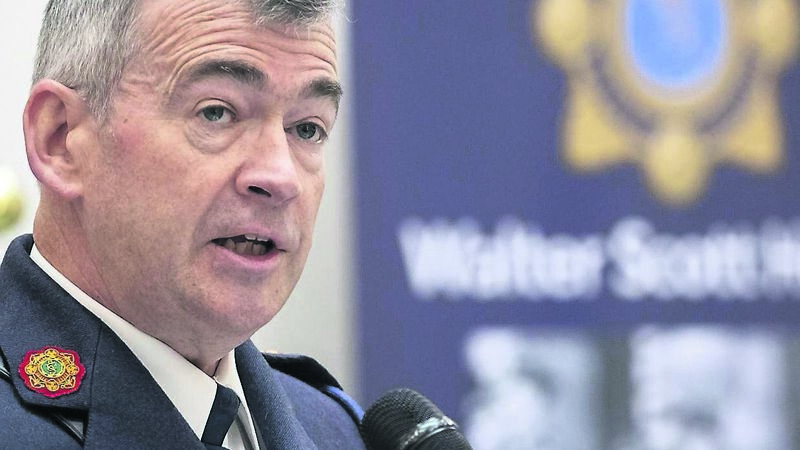Garda woes can only be solved by getting back to the basics

Cllr Deirdre Forde said it’s a “sad reflection” on the city that people don’t feel safe, and she called for more gardaí to be on patrol.
There have been calls for more gardaí on the streets of Dublin too following some well-publicised assaults on members of the Force. Residents, businesspeople and visitors have also complained about feeling unsafe on the streets of the capital.
Leaders of the Garda Representative Association (GRA), and the Association of Garda Sergeants and Inspectors (AGSI), have echoed the call for extra resources, but admit that not only are they failing to attract new candidates, they are also struggling to hold on to the members they have.
The large number of resignations the force is experiencing is leaving a significant hole in the organisation. Figures, released by Garda headquarters to various sources show an increase in the number of resignations from around 41 in 2017 to 94 in 2021 and 109 in 2022.
Changes to pension, pay and conditions are being cited as the main cause. Recent controversies haven’t helped either and have contributed to the poor morale being experienced throughout the force. Excessive oversight also seems to be a factor.
Brendan O’Connor, President of the GRA, said the failing recruitment drive was impacting policing.
“The failure to meet recruitment targets, coupled with significant numbers of resignations, has the potential to further impact on the effectiveness of the policing service, that the public can expect to rely on.”
Some have cited the increased animosity towards gardaí as being one obstacle to recruitment and retention, while others have suggested that management and oversight within the organisation is also causing problems.
Retired Garda Inspector Tony Gallagher told the Journal.ie recently that he believes gardaí are choosing to leave the career rather than deal with the difficult internal environment.
“To start with, the probationer training system is too academic, there needs to be a greater emphasis for on-the-job training,” he said.
Gallagher also believes that the multiple bodies set up to oversee the gardaí, such as the Garda Síochána Ombudsman Commission, the Policing Authority and the Policing Inspectorate are making the work of gardaí more difficult.
“The garda organisation is now haemorrhaging personnel, with young members deciding to leave. There is absolutely no doubt that the training system and stifling oversight by numerous bodies is a factor,” he added.
I don’t know Drew Harris. I’ve never met the man, but I’m told he has the reputation for being a strong disciplinarian. Perhaps as someone who wants things done his way and his way only?
He is obviously a very qualified police officer but most of that experience was gained as a member of the Police Service of Northern Ireland (PSNI), a different organisation entirely to An Garda Siochana.
Mr Harris has brought some of his former colleagues with him to the Phoenix Park and their combined policing experience is bound to influence how An Garda Siochana functions.
But, unlike the P.S.N.I., An Garda Siochana is a community-based organisation and the relationship between the community and the police in this jurisdiction has always been what set us apart. Maybe it’s time to examine what we had and seek a compromise.
In 1979, I arrived with 89 other guys in the Garda Training Centre in Templemore, and during our six-month training period we learned the basics of policing. How to investigate a traffic accident, how to deal with a shoplifter, how to make an arrest, how to serve a summons and execute a warrant.
We also learned how to give evidence in court and generally how to represent the organisation in the real world beyond the confines of the training centre.
The rest, we were told, we would learn from our colleagues when we reached our allocated stations.
The practical experience we would gain from being thrown in at the deep end and from dealing with real life issues could not be learned in a training environment, so our mentors wished us well and sent us on our way.
We took our orders from the sergeant and spent our early years learning the ropes while performing foot patrols or ‘walking the beat’. This was how we familiarised ourselves with the locality.
It also taught us about camaraderie because we had to look out for one another. It allowed us to engage with the locals and develop relationships which was, and should still be, a very important aspect of policing.
Local knowledge is a major weapon in a policeman’s armoury and to get that you need to be out and about, meeting the locals, engaging with young people, and being involved in community life - but that strategy seems to have been discarded.
An Garda Siochana is more effective, and more appealing to potential applicants, when gardaí are seen to be part and parcel of the local community.
That relationship is essential but it’s impossible to develop when you’re under-resourced, stifled by oversight, and controlled by a computer system.







 App?
App?




